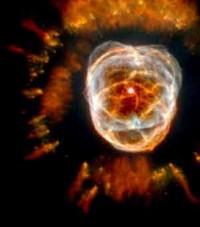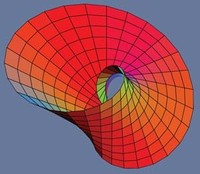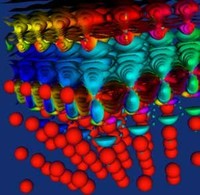 The first department founded at RBI was Theoretical Physics Department, later renamed the Division of Theoretical Physics (DTP), followed by the Electronic Department and Department for Experimental Physics. The most important contribution to the development of theoretical physics at the RBI was made by Vladimir Jurko Glaser, Gaja Alaga and Borivoj Jakšić. They left behind significant scientific legacy in the areas of quantum field theory (Glaser, Jakšić) and theoretical nuclear physics (Alaga) and raised generations of outstanding theorists. In 1961 Jakšić organized the first international school in high energy physics, starting a world-renowned series of meetings lasting for more than 40 years. Moreover, a close relationship between DTP and its counterpart at the University of Zagreb was established and has since proven to be instrumental for excellence in both research and teaching. From the very beginning international cooperation of researchers at DTP was always sine qua non, with frequent research visits, postdoctoral studies and specializations abroad. Thus, the new generation of theoreticians could establish themselves as independent researchers and gradually develop new research areas.
The first department founded at RBI was Theoretical Physics Department, later renamed the Division of Theoretical Physics (DTP), followed by the Electronic Department and Department for Experimental Physics. The most important contribution to the development of theoretical physics at the RBI was made by Vladimir Jurko Glaser, Gaja Alaga and Borivoj Jakšić. They left behind significant scientific legacy in the areas of quantum field theory (Glaser, Jakšić) and theoretical nuclear physics (Alaga) and raised generations of outstanding theorists. In 1961 Jakšić organized the first international school in high energy physics, starting a world-renowned series of meetings lasting for more than 40 years. Moreover, a close relationship between DTP and its counterpart at the University of Zagreb was established and has since proven to be instrumental for excellence in both research and teaching. From the very beginning international cooperation of researchers at DTP was always sine qua non, with frequent research visits, postdoctoral studies and specializations abroad. Thus, the new generation of theoreticians could establish themselves as independent researchers and gradually develop new research areas.
Following the modern development in theoretical physics in the seventies and eighties, scientist at DTP acquired expertise in modern field theory and particle physics, group theory, matrix models, and surface physics. Over the years theoretical physicists at DTP have actively work and developed well-defined research programs in theoretical particle physics, mathematical physics and condensed matter physics. Following all those modern trends continues to make Zagreb’s theoretical physics widely recognizable today. Modern trends reshaped the research of theoretical physics and its position is today characterized by wide theoretical research from the field theory and particle and astroparticle physics, to group theory and matrix models, condensed matter and statistical physics.
 Research program in particle physics is done with the aim of improving our understanding of the physics of the Standard Model of particles and seeking evidence of new physics outside the Standard Model. We are focused on theoretical and phenomenological analysis of particle decays and collisions with advanced precision, on modelling new physics with special interest in possible candidates for dark matter as well as on asymptotically safe extensions of the Standard Model and their cosmological limitations. Also, the revitalization of cosmological research will continue to be one of the priorities in the coming period.
Research program in particle physics is done with the aim of improving our understanding of the physics of the Standard Model of particles and seeking evidence of new physics outside the Standard Model. We are focused on theoretical and phenomenological analysis of particle decays and collisions with advanced precision, on modelling new physics with special interest in possible candidates for dark matter as well as on asymptotically safe extensions of the Standard Model and their cosmological limitations. Also, the revitalization of cosmological research will continue to be one of the priorities in the coming period.
 In the area of mathematical physics, the research is driven by the question of understanding the structure and properties of space-time at very short distances and the corresponding symmetries in string and field theories. The research relies in part on the previously developed expertise in understanding and applying noncommutative geometry methods and is further developed in new areas of research by applying the modern differential geometry methods for description of the symmetries and structure of space-time and physical processes relevant to the early development of Universe and black hole physics.
In the area of mathematical physics, the research is driven by the question of understanding the structure and properties of space-time at very short distances and the corresponding symmetries in string and field theories. The research relies in part on the previously developed expertise in understanding and applying noncommutative geometry methods and is further developed in new areas of research by applying the modern differential geometry methods for description of the symmetries and structure of space-time and physical processes relevant to the early development of Universe and black hole physics.
 Research of surface phenomena, physics of nanostructures and material physics combines theory and ab initio numerical modelling of graphene and van der Waals materials with applications on charge transport in nanostructures, neutral and ionic media, nanoelectronics, spintronics, sensors and for the search for new materials using computers by application of machine learning methods. The newly developed research area of multiparticle and complex systems includes applications of statistical physics to cyber security problems, spontaneous optimization of transport networks, symmetry in economic systems and systemic risk, and applications of networks in biology. The investigation in the areas of quantum statistical mechanics and quantum thermodynamics is applied to problems of quantum information, atomic systems and random matrices.
Research of surface phenomena, physics of nanostructures and material physics combines theory and ab initio numerical modelling of graphene and van der Waals materials with applications on charge transport in nanostructures, neutral and ionic media, nanoelectronics, spintronics, sensors and for the search for new materials using computers by application of machine learning methods. The newly developed research area of multiparticle and complex systems includes applications of statistical physics to cyber security problems, spontaneous optimization of transport networks, symmetry in economic systems and systemic risk, and applications of networks in biology. The investigation in the areas of quantum statistical mechanics and quantum thermodynamics is applied to problems of quantum information, atomic systems and random matrices.
Theoretical physics has meanwhile raised its international visibility, attracting many foreign researchers to its permanent positions (the largest percentage of foreigners at RBI and probably in Croatia as well), and by a big step forward in researchers’ mobility thanks to the EU Horizon2020 project RBI-T-WINNING, from 2014 to 2108. Moreover, the modernisation of the department was achieved by the succeeding structural EU fond project RBI-T-WINN-SIN, from 2018-2020.
On February 28, 2019, Croatia became an associate member of CERN, the world's largest scientific laboratory for basic research in the field of high energy physics. This will furthermore enable DTP scientists to engage in research at the outmost front of particle physics and interact with the world’s best scientists.
The Division of Theoretical Physics will continue to be engaged in modern theoretical research in the areas covered by existing groups but we also open new research fields in areas of astrophysics and cosmology. The existing expertise is an excellent starting point for facing future challenges of theoretical physics which include improved understanding of particle physics phenomena and their unity with astrophysics and cosmology resolving problems of cosmological misteries like dark matter, black holes, and multiple universes, search for unification of the Standard model with gravity and building the theory of quantum gravity, utilizing AI in theoretical research for finding of new materials and application of physics insights and methods in other sciences.
The high level of international cooperation will continue to be encouraged and developed through scientific mobility, cooperation and education. DTP will maintain and further expand its leading role in certain areas of fundamental research at the national level, and will continue to promote competitiveness on the world research scale which will contribute significantly to scientific excellence and strengthening the RBI as the leading scientific institute in the region.
The Division of Theoretical Physics has always been a part of the international research landscape and the new generation of theoretical physicists firmly established in the international community is ready to face challenges of modern physics.
